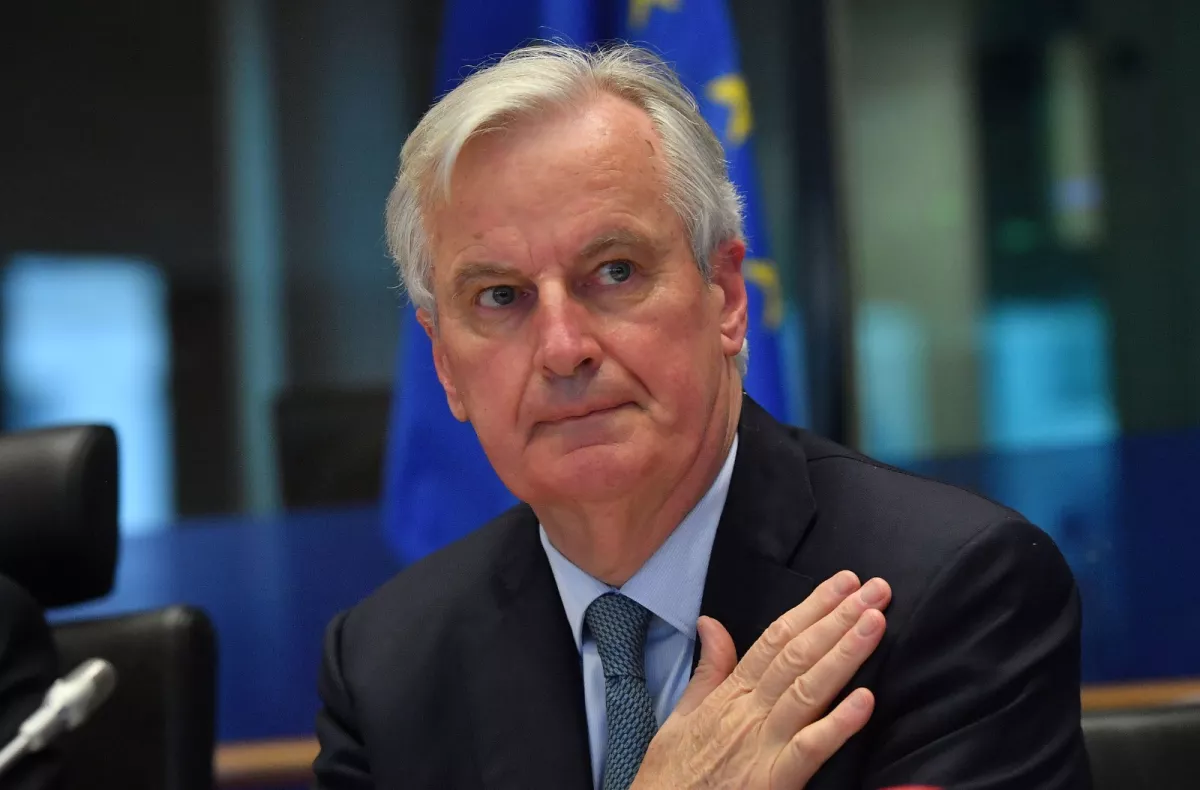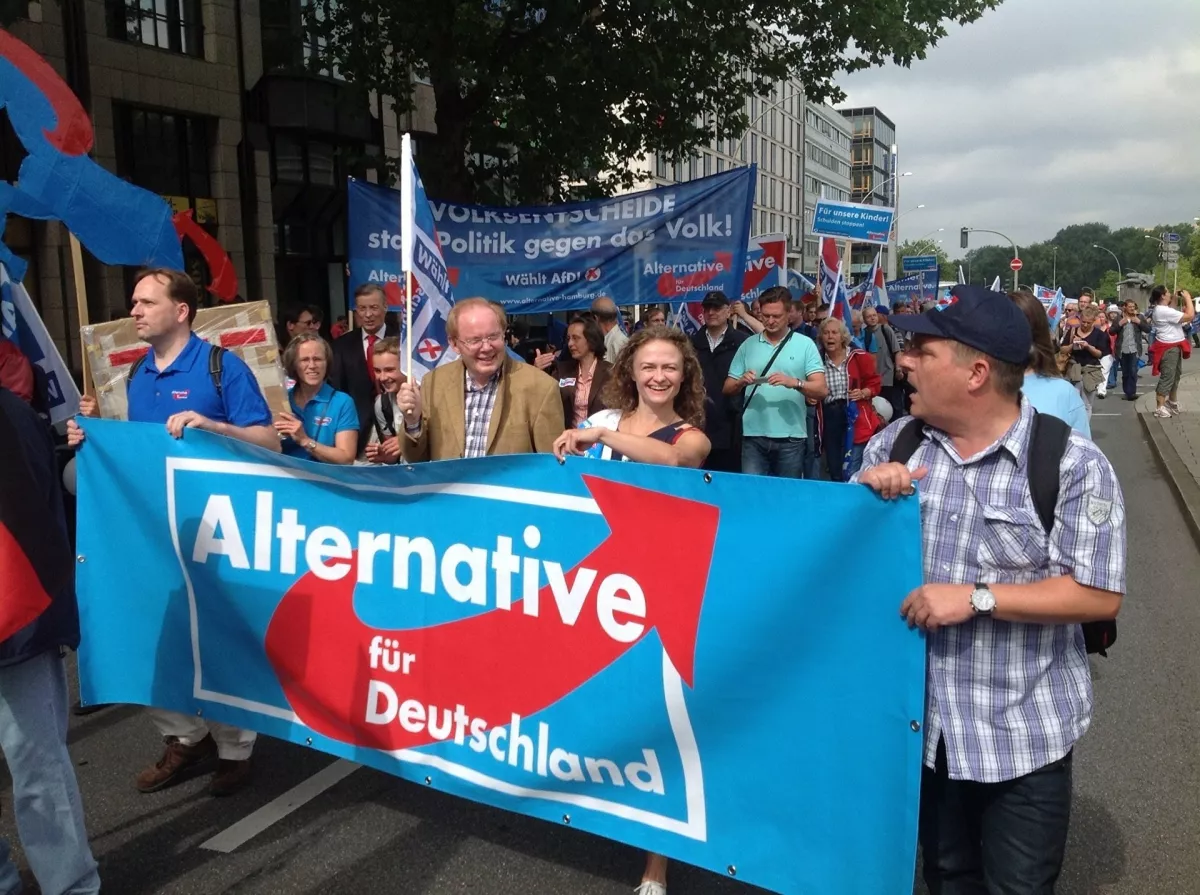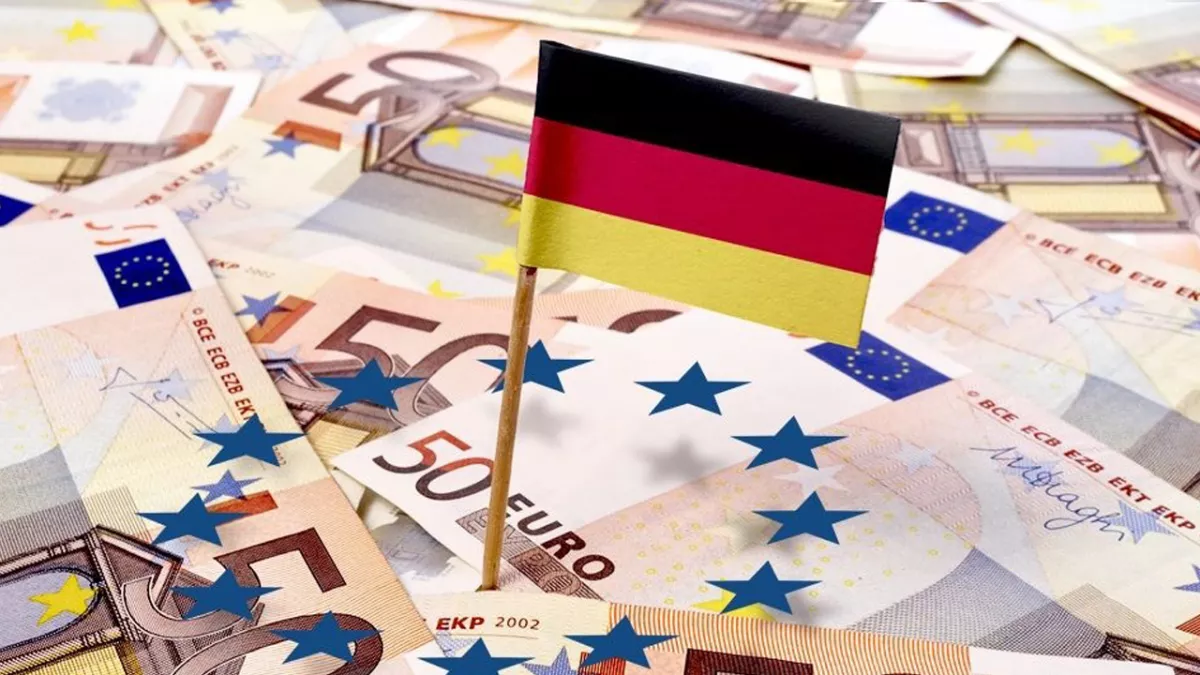French, Germans rebel against Macron, Scholz
Political crises have intensified this week in two of the EU biggest member states. French President Emmanuel Macron is struggling to maintain his grip on power, trampling on the will of people and paralyzing the parliament.
Meanwhile, German authorities, dissatisfied with the electoral victories of a new opposition force, are using methods that could significantly weaken local governance. The causes of the crises in both countries are similar: the dogmatism and ideological narrow-mindedness of the ruling elites have led these nations and the EU into a deadlock. The result has been an economic downturn amid an adventurous and dogmatic foreign policy.
In Germany, alongside the deployment of American missiles by the Green party faction and the stationing of German troops in the east, even Volkswagen is considering leaving the country. Meanwhile, Macron, struggling with the budget deficit, oscillates between dreaming of sending troops to Odesa and actually sending weapons to fuel new conflicts in the South Caucasus.
The EU, in the meantime, is sustained by these two nations.
The elections were stolen from the French people
Clinging to power, President Macron and his team have systematically turned democracy into a farce over the past few months—manipulating political forces and disregarding public opinion. The latest chapter in this process was the appointment of a new prime minister on September 5. To gauge the depth of cynicism expressed in this latest round of political maneuvering, one should "watch Macron's actions" over the past few months. Realizing in spring that both he and the ruling elite were on shaky ground, Macron called for snap parliamentary elections in July.
In these elections, the far-right party National Rally, led by Marine Le Pen, nearly triumphed. Le Pen might have won by an even larger margin, but Macron and his allies managed to orchestrate a clever counter-strategy—mobilizing the French left to "defend democracy" against Le Pen. The left formed a bloc under the prominent name "New Popular Front" effectively siphoning off a portion of the dissatisfied votes from Le Pen's supporters. In the dire situation he faced, Macron's main goal was to achieve at least a paralysis of the parliament, rather than allowing it to fall into the hands of any opposition force. He succeeded in this aim with the help of the left.
As a result of the elections, Macron’s party lost its majority in the French National Assembly. However, no single force now holds a majority; instead, the opposition is fragmented into roughly two equal blocs, within which there is also a lack of unity. Macron was assisted by the "New Popular Front" of left-wing parties in turning the parliament into a paralyzed shambles. After the new MPs were elected, these parties struck another deal with the president. Together with Macron’s supporters, they blocked the election of Le Pen's allies to key parliamentary positions. This was scandalous, especially considering that the National Rally and its allies had garnered 33.21 per cent of the votes. The left party members hoped for rewards for their services, primarily participation in the new government. However, their goodwill did not go unpunished. After the elections, Macron initially delayed forming a new cabinet and then began consulting with far-right Le Pen—this time using her against the left party members, who had just helped him twice! He sought Le Pen’s support in parliament for the new government.
Macron did not entrust the formation of this government to any of the forces that had supported him in the elections—neither the left nor Le Pen.

Instead, Macron proposed that the government must be formed by a representative from the right-wing party "The Republicans" which had been defeated in the elections and ranking last among all parties in the parliament. Once authoritative and even responsible for forming governments in the early 2010s, The Republicans have since compromised their reputation. Their revival by Macron appears as a mockery of French society. Additionally, Macron pulled out 73-year-old Michel Barnier from obscurity—a gray bureaucrat with a modest track record and questionable achievements, such as his role in orchestrating the UK’s exit from the EU.
From the perspective of French leaders, it is irrelevant that the vast majority of both left-wing and right-wing French voters have just made it clear that they do not want this person or others like him in parliament, let alone the government. It also does not matter that voters, having divided their support, cast their votes for two other powerful blocs that gained significant strength in parliament and were far more entitled to take on the task of forming a new government. The left bloc has demanded Macron's impeachment and described his maneuvers regarding the new cabinet as a "coup d'état." Jean-Luc Mélenchon, one of the leaders of the French left, declared that "the election was stolen from the French people, and their message was rejected." Mélenchon conveniently omitted the fact that the left had actively assisted Macron in denying the right-wing their victory. Macron may appear to be the victor for now, but he is playing with fire. For the first time in 66 years under France's current political regime, the country lacks a functional parliament. The new cabinet will face challenging times, including managing a budget deficit of 5.6 per cent, nearly double the limit set by the European Commission (3 per cent).
Meanwhile, Paris has significantly increased military spending ahead of schedule this year and met its NATO commitment to raise defence expenditures to 2 per cent of GDP. In an apparent effort to please Washington, Macron's government plans to continue rapidly increasing military spending. For the French establishment, the priority is not the well-being of their own citizens or their assessment of government actions, but rather the opinions of ruling liberal elites in allied countries. This is why Macron has chosen to structure the balance of power in France in a way that ensures at least a prolonged crisis, if not a complete collapse of the Fifth Republic, in order to maintain his own grip on power.
Grocery stores enter the political arena in Germany
Another EU member state, Germany, is also grappling with a challenging political and economic situation. Like France, Germany is governed by political forces lacking substantial public support, yet clinging to power through manipulation. A notable example of this is the recent elections in two major German states—Thuringia and Saxony—held over the past weekend. In both states, all three parties of the ruling coalition faced a crushing defeat.
In Thuringia, only one of them—the Social Democratic Party—managed to barely surpass the 5 per cent threshold to enter the regional parliament, securing just 6.4 per cent of the votes. In Saxony, the situation was only marginally better, but still disgraceful: even two of the ruling coalition parties managed to enter the parliament with minimal margins—Social Democrats with 7.1 per cent and the Greens with 5.1 per cent. The third coalition partner, the Free Democratic Party (FDP), performed so poorly that its results were not even announced separately but were lumped into the "others" category. The FDP, as a reminder, plays a crucial role in the German government, including overseeing the Ministry of Finance and regularly blocking initiatives from other coalition members. A stunning victory was achieved by the relatively new opposition force, Alternative for Germany (AfD). For the first time, the AfD has secured such significant positions in regional parliaments that forming governments in Saxony and Thuringia without it will be extremely challenging. For years, the German establishment has tried to undermine this party by any means necessary.
This time, just before the elections, one of Germany's largest supermarket chains, Edeka, launched a campaign against the AfD. Following the elections, a curious incident occurred: election results began to be revised due to "software errors." As a result of this "correction," the AfD lost its blocking vote in the Saxon parliament. A crucial role in the establishment's fight against the AfD is played by the so-called "Sahra Wagenknecht Alliance"—a rapidly formed coalition around a single politician who is permitted to express some ideas similar to those of the AfD. Unlike the AfD, Sahra Wagenknecht's articulation of such ideas, even on topics like the war with Russia, is tolerated. Wagenknecht has helped siphon off some of the AfD's votes, depriving the party of the ability to unilaterally form governments in both regions.

Since its founding in the early 2010s, the political establishment has taken harsh measures against the Alternative for Germany (AfD), yet the party's strength continues growing. This is notable, considering that the AfD is indeed quite clumsy, filled with openly dubious and racist ideas and activists.
However, the current German leaders—with their "feminist foreign policy," off-budget multi-billion-euro arms funds, and inability to provide basic raw materials for their industries, all amidst declining incomes, rising prices, drug proliferation, and increased crime—have led people to support even such a problematic opposition party more fervently. In its battle against the AfD, the ruling elites in Germany behave similarly to Macron—dividing the opposition and preventing both left-wing and right-wing opponents from coming to power. German Chancellor Olaf Scholz recently openly called for preventing the election-winning AfD from gaining power. As a result, a majority of voters supporting far-right and pseudo-left parties are being pushed out of real politics. This approach could push Germany towards an increasingly unmanageable state, as the AfD continues gaining strength while governments are formed without its participation, relying on unpopular parties instead. In three weeks, elections will take place in another major German region—Brandenburg.
According to recent polls, the AfD is supported by 24 per cent, the ruling Social Democrats by 20 per cent, the Christian Democrats by 19 per cent, and the "Sahra Wagenknecht Allience" by 17 per cent.
Degradation of the Euro-integration project
The reasons for the rise of the AfD and similar movements are clear—an increasingly noticeable gap between the rhetoric of the ruling politicians and the material reality. The authorities’ dubious manipulations are particularly evident in the economy. This is especially apparent in Germany, where a robust industrial base provides a stark contrast to the situation in France. The influential think tank of the global financial industry, the Institute of International Finance, suggested in its latest report that the European Central Bank (ECB) is struggling with doubts over which course to take in the current situation.
The report highlighted that economic conditions within the Eurozone vary significantly between countries—Germany is on the brink of recession, while Poland, Italy, and Spain are experiencing economic growth. The concerns raised in the recent analysis are, upon closer examination, rather misguided. The European Union relies heavily on Germany and Western European countries, not on Eastern or Southern Europe. The EU's financial structure is such that Brussels primarily collects funds from Germany and distributes them to such countries like Poland. Thus, the question of what actions to take should not even arise. Historically, it hasn’t—whenever a recession threatened Germany, the ECB consistently lowered interest rates, as seen in 2001, 2002, and 2011. But those were the days when the EU was cynical but pragmatic. Today, however, it is governed by politicians who are both cynical and dogmatic.
The rise of ideological dogmatism has led to the inclusion of structurally weak countries in the EU, which rely on Brussels' subsidies but can still form a majority to make decisions that ignore the interests of donor countries. This was only the beginning—dogmatism continued growing, accompanied by hypocritical slogans such as "Europe without borders" (while the EU constructed increasingly impenetrable borders in Eastern Europe, where none had existed historically) and "returning to the European family" (a concept that never existed but is being constructed by liberal ideologues along lines strikingly similar to religious and racial divisions, excluding such countries as Türkiye and, now, Georgia). In fact, the risk of the EU institutions ignoring the interests of the German economy—despite its crucial importance to the entire EU—was one of the driving forces behind the creation of the aforementioned Alternative for Germany (AfD). Established in 2013 by euroskeptics who demanded a withdrawal from the euro amid the EU's reckless infusions of funds into peripheral countries, the AfD was a reaction to the failure of these investments to boost those nations or address the fundamental disparities in development within the EU.
This cautious stance on dogmatic eurointegration was not only voiced by right-wing activists but also by long-standing high-ranking German government officials in finance, such as the Social Democrat Thilo Sarrazin, who had dared to publish a book titled "Europe Does Not Need the Euro" back in 2012.
The cost of confrontation with Russia and China
Even then, the situation appeared risky to knowledgeable observers, as dogmatism and moralizing outweighed pragmatism and rationality. Today, the German economy has become even more dire, with dogmatic approaches to economic management having further entrenched themselves over the years. This was evident in the way German politicians, following the break with Russia, sought alternative sources for energy supplies, often engaging in debates over whether working with certain countries was acceptable from a liberal dogmatic perspective (with criticisms aimed only at non-US satellite states). This was at a time when the German economy urgently needed alternative energy resources and raw materials to replace those previously sourced from Russia.

Last week, EU authorities reported that the negative impacts of severing ties with Russia have been overcome: the EU's trade balance has turned positive. However, a significant, though hard-to-quantify, portion of trade with Russia continues through third countries—not only massive economies like China and India but also smaller countries such as Armenia and several others. Calling this a true "recovery" is problematic, as Europe's economic leader—the German industrial sector—is severely weakened and increasingly relocating overseas. Business activity in Germany's manufacturing sector continues declining. In the first quarter, GDP showed almost no change, and in the second quarter, it dropped by 0.1 per cent. Even analysts at the Kiel Institute for the World Economy, who typically avoid alarmist predictions, forecast a 0.1 per cent contraction for the year (a stark contrast to their earlier prediction of a 0.2 per cent growth).
They acknowledge that Germany's economy has "remained stagnant," and the early signs of economic recovery observed at the beginning of the year have "failed to materialize." These issues began not recently but at the start of the current coalition's tenure, exacerbated by the pandemic's aftermath, the rupture with Russia, deteriorating relations with China, and the shifting of European businesses across the Atlantic, a trend driven by President Biden. One of Germany's most renowned car brands, Volkswagen, plans to close two of its factories within Germany for the first time in history. One of these factories is located in Saxony, where the opposition party AfD recently won a major victory.
The reason behind this decision is the deteriorating business environment in the country. Volkswagen's CEO, Oliver Blume, explained: "Germany is increasingly falling behind in terms of business competitiveness." Right-liberal commentators have attempted to blame the trade unions for Volkswagen's decision. However, this is questionable—German trade unions have always defended workers' rights, and the company is leaving the country only now. Recently, Volkswagen invested heavily in retraining the entire workforce at this factory for electric vehicle production.
A more plausible explanation, which is uncomfortable for the German authorities with their radically pro-American stance, is that the issue may not be the break with Russia, but certainly lies in the escalating problems with China. Volkswagen hasn’t merely lost markets and production capacity in Russia. It was revealed that the company's sales in China have also plummeted—down 19 per cent in the second quarter alone. Of course, this issue isn’t confined to German firms; in recent years, the market share of foreign automakers in China has crashed from 53 per cent to 33 per cent. This decline primarily affects manufacturers from the West and its closest allies.
They are suffering because the Chinese government has finally responded to years of attempts by the US, EU, and their allies to pressure Chinese manufacturers and exporters, particularly in microelectronics, through both subsidies for local producers and outright bans. The economy has already delivered its verdict on many Western leaders. The political landscape, however, is becoming increasingly complex. Relying on pseudodemocratic dogmas, Western officials are effectively pushing many of their citizens out of the political arena.
This, in turn, leads to the formation of governments that depend on a minority. These governments, weak domestically, either embark on foreign policy adventures or obediently follow the lead of more powerful states. For a time, this approach may appear to work, but the current crises across the West reveal that, in the end, such countries find themselves amid a heap of ruins.








